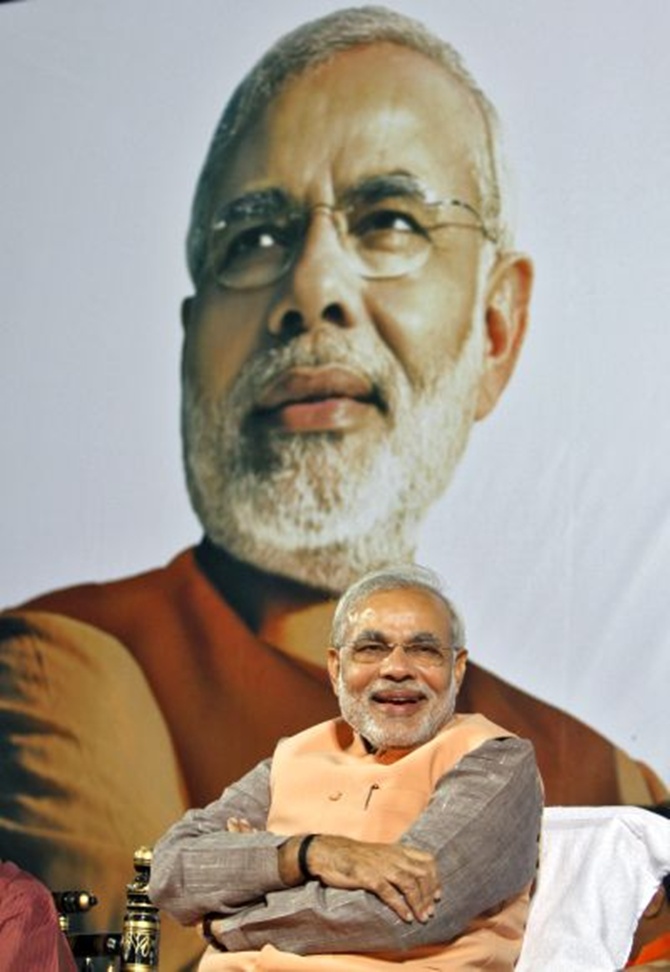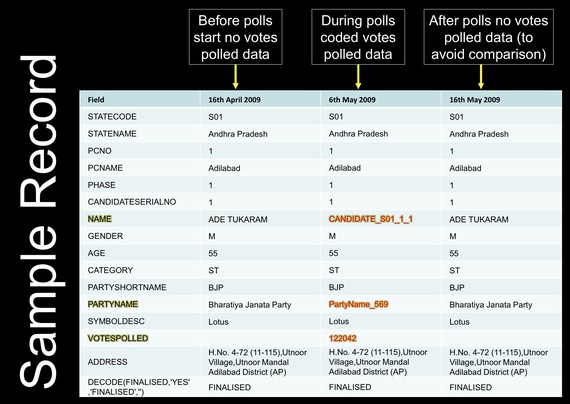Sunday, 25 May 2014 | Cleo Paskal | in Agenda

Across the globe, now that the world’s largest elections are through, capital cities are scrutinising India with the anticipation of seeing that sharp glint of strength which indicates they have channels of constructive pursuits. Essentially, Modi’s India spells strength and hope for those looking to break through boundaries
For the last few years, seen from the outside, India’s foreign policy has appeared lackadaisical, directionless, and occasionally contradictory, interspersed with sharp, bright glints of enormous potential. For example, the lack of regional responsibility regarding the coup in the Maldives was countered with the spectacular growth in the relationship with Japan.
Often, especially recently, these contradictions sometimes seem as though the system was fighting itself. The Rafale deal was announced, but stalled. A very high profile India-Japan summit was planned, but cancelled. The Italian Marines were charged, but allowed to go home. Twice. And, in another bright glint, dragged back.
There is a feeling abroad that Prime Minister designate Narendra Modi’s foreign policy will be much more consistent — and glinting. For those who benefited from the old system, there is concern. For those who think the world needs more India, there is anticipation. Everyone is waiting.India is the elephant in a quickly changing geopolitical room. So far, it has sat quietly as dragons, bears and eagles bite, roar and claw. Now capital cities around the world are turned towards Delhi, watching for signs of a stirring.
Different countries want different things from Modi’s India. China wants India to sit quietly on the sidelines as it stretches its wings. Japan wants a strong strategic and economic partner. France wants a market for its military hardware.But nothing is quite that simple, and even within each country, different groups have different priorities. And the bigger the country, the more complex the expectations.
For example, some in the United States want a continuation of business as usual. They will look closely at the new team, searching eagerly for old, friendly faces, knowing once they have that toehold, they will have leverage. Others in the US will look for major changes in the economic and tax systems that will allow India to grow, and bring them along with it. Still others will be looking at social policy, with some of those looking at India’s spiritual reawakening with hope. Others (especially those funded from outside the US) with anger.
Understanding the totality of the change is a challenge for the US (and the West in general) where interests tend to be contained in silos. For example, in the West, you are either ‘pro-business’ or an ‘environmentalist’, rarely both. From that narrow perspective, Prime Minister Modi’s complex, crosscutting approach can appear confusing. He was elected in large part on his promise to grow the economy. But one of his first public speeches after winning was on the near existential importance of cleaning up the river Ganga as soon as possible, and cleaning all of India by 2019. What’s a poor Walmart executive to think?
Prime Minister designate Modi’s holistic growth model is, of course, far more effective and stable over the medium and long term but, in the short term, specific outside interests who benefited from the status quo may feel it undermines their position. There is just too much money at stake for them to passively ride it out. They are likely to pick and choose policies to publicise (or misrepresent) that can undermine Modi at home and abroad. Which is why it will be crucially important that Modi’s entire team is above reproach, and performs. To be able to withstand the circling pressures, Modi needs not only to cleanse the Ganga, but the nation. And that starts at the top.
Modi’s success or failure has global implications. Currently, most middle or small powers engage to varying degrees with two main spheres. The Western one, based on a specific sort of capitalism and governance, and the Chinese one, which has its own set of norms. There is widespread discontent with the perceived slow development resulting from the Western model in places like Africa, Latin America and Asia, which is why China has moved in there so fast and so deep. But there are now growing concerns about China.
The path is open for India to offer a third way. It is not about India competing with the West or China, it is about India being something that the others aren’t, something that resonates deeply in many of the medium and smaller powers around the globe. And it starts with the concept of Vasudhaiva Kutumbakam.
Embedded in the concept itself are the values of faith (believing you are part of something greater than yourself) and family. Faith and family are core elements of many societies around the world. They shape the economy, the social structures and sense of identity. However, faith and family are seemingly lacking from the proudly secular and individual rights-based foreign policies of the West. Meanwhile, China actively represses and distorts religion at home and has destroyed the concept of the extended family through its single child policy.
The result is, when the West or China comes in to countries like those in Africa, Latin America, or the South Pacific, where faith and extended families are foundational, their externally imposed policies can result in severe societal dislocation and destabilisation.
India knows the challenges of development first hand. It knows the challenges of communal land, of limited access to capital, of tariff manipulation. It knows village economics and massive urban sprawl. It knows faith. And it knows family. There is hope in many countries around the world that India’s knowledge will combine with the long time horizon and inclusiveness implicit in Vasudhaiva Kutumbakam to create partnerships that move away from the dominant zero-sum game ideology and towards shared, secure, stable development. Something that will benefit the West as well.
Similarly, there is a desire among many medium and smaller powers to move away from a system of hierarchical allegiances towards true alliances.
That was why the Devyani Khobragade case had such global resonance. The particulars of the case aside, this was perceived as India saying loud and clear, we want reciprocity. If you treat us in a certain way, we will treat you exactly the same way. We will force you to act like a responsible family member. That glint had a huge effect internationally. In Delhi, Ambassadors from Africa and Latin America congratulated Indian colleagues for their stance.
The incident also helped the US. Those who had been pushing for better relations with India now had a stick to go with the carrot of trade. And some of the recalcitrant old-schoolers were forced to accept that geopolitical realities were changing. As a result, there have been moves to adapt, hence the sudden departure of the Ambassador. But no system likes change. And there will be tremendous pressure on Modi to revert to the way things were, even if that model hurts all parties over the long run.
Modi’s India has tremendous opportunities. He is coming to power at a time when there are epochal shifts in geoeconomics and geopolitics. In the same way that his holistic domestic policies are breaking through boundaries, he has the opportunity to reshape, and redefine, what is possible in international relations.All around the world, people are looking to India, hoping to see that sharp glint of strength and hope that means they have options.



